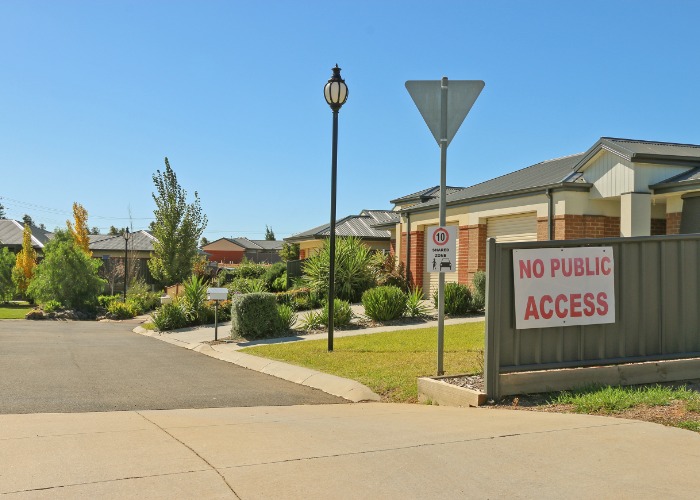The pros and cons of retirement villages

Retirement villages allow you to enjoy your later years in lovely surroundings, with often terrific facilities. But there may be a financial sting in the tail to consider too.
If you like the sound of spending your retirement in a community of people all of a similar age to you, enjoying the sorts of facilities that you’d normally associate with a hotel or spa resort, then a retirement village may be for you.
A retirement village is basically a community of properties which are designed to cater for older people.
They bring together a host of different types of properties, covering things like bungalows and apartments, and may offer some form of care assistance, though the idea is to support the residents in living as independently as possible.
The amenities
One of the big selling points of retirement villages is the range of facilities and amenities on offer.
The idea is that you get some real luxury in your later years, so don’t be surprised to see the likes of heated pools, indoor gyms and landscaped gardens on offer, as well as a host of bars and restaurants, all on site.
Retirement villages like to promote the social side of buying one of these properties - there are plenty of opportunities for you to see the other people living on site and make friends, as well as spend your time keeping active.
People just like you
Obviously, with a retirement village all of your fellow residents are going to be in their twilight years too.
This can be a good thing, as you’re more likely to have things in common, but it can also be a downside as well. Some older people prefer to live in areas where they are as likely to see - and bond with - young families as with people of a similar age to them.
This really all comes down to personal preference.
Maintenance is not a problem
Another big advantage of moving to a retirement village is that all maintenance work is the responsibility of the scheme provider.
So you don’t need to worry if something breaks down, or if the lawn needs cutting - you can focus on enjoying your time there, rather than focusing on when to tackle the chores.
Can a retirement village boost your life expectancy?
Living in salubrious surroundings with people at a similar stage of life to you may actually boost your chances of living longer.
That’s according to research conducted by the Cass Business School and the International Longevity Centre - UK, which looked at the records of people that had lived at Whiteley Village, a retirement village that has been around for 100 years, compared to the older population across the rest of the country.
It found that female residents in particular enjoyed a boost to their longevity when compared to the wider population, at one point even boasting a typical extra five years of life.
The report adds: “Whiteley’s longevity advantage is even greater once we take account of the fact that the resident population is drawn from the poorest pensioners, who would be expected to experience higher mortality rates.”
Buying and selling
When purchasing a property in a retirement village, the actual cost of the property itself is only one consideration.
You’ll also need to pay close attention to the service charges you’ll have to pay as these can be quite significant and swiftly eat into any money you set aside from downsizing.
It’s also worth bearing in mind that these charges will still have to be paid by your loved ones after you die or move into care, until the property is sold on.
Another thing to consider is resale values.
Research by the Elderly Accommodation Counsel for the BBC found that around half of new-build retirement homes sold during a 10-year period were later resold at a loss, in some cases by as much as 50%.
A financial sting in the tail
There is a serious financial sting in the tail to keep in mind too, in the form of exit fees.
These are paid once the owner moves into full-time care elsewhere or passes away, and the property is sold.
Exit fees - and other ‘event fees’ - have been the subject of an investigation of the Law Commission, which declared that there are “major problems” with these charges.
This includes the fact that they can be hidden in complex leases or only disclosed to the older person very late in the process of buying the property.
Even if they are spotted, there are dangers that the residents may fail to fully understand the financial consequences of the exit fees.
It has called for a code of practice to be implemented by the Ministry of Communities and Local Government to limit when these fees can be charged, and the size of these fees.
However, despite publishing the report over a year ago, the Government is yet to actually do anything.
Comments
Be the first to comment
Do you want to comment on this article? You need to be signed in for this feature